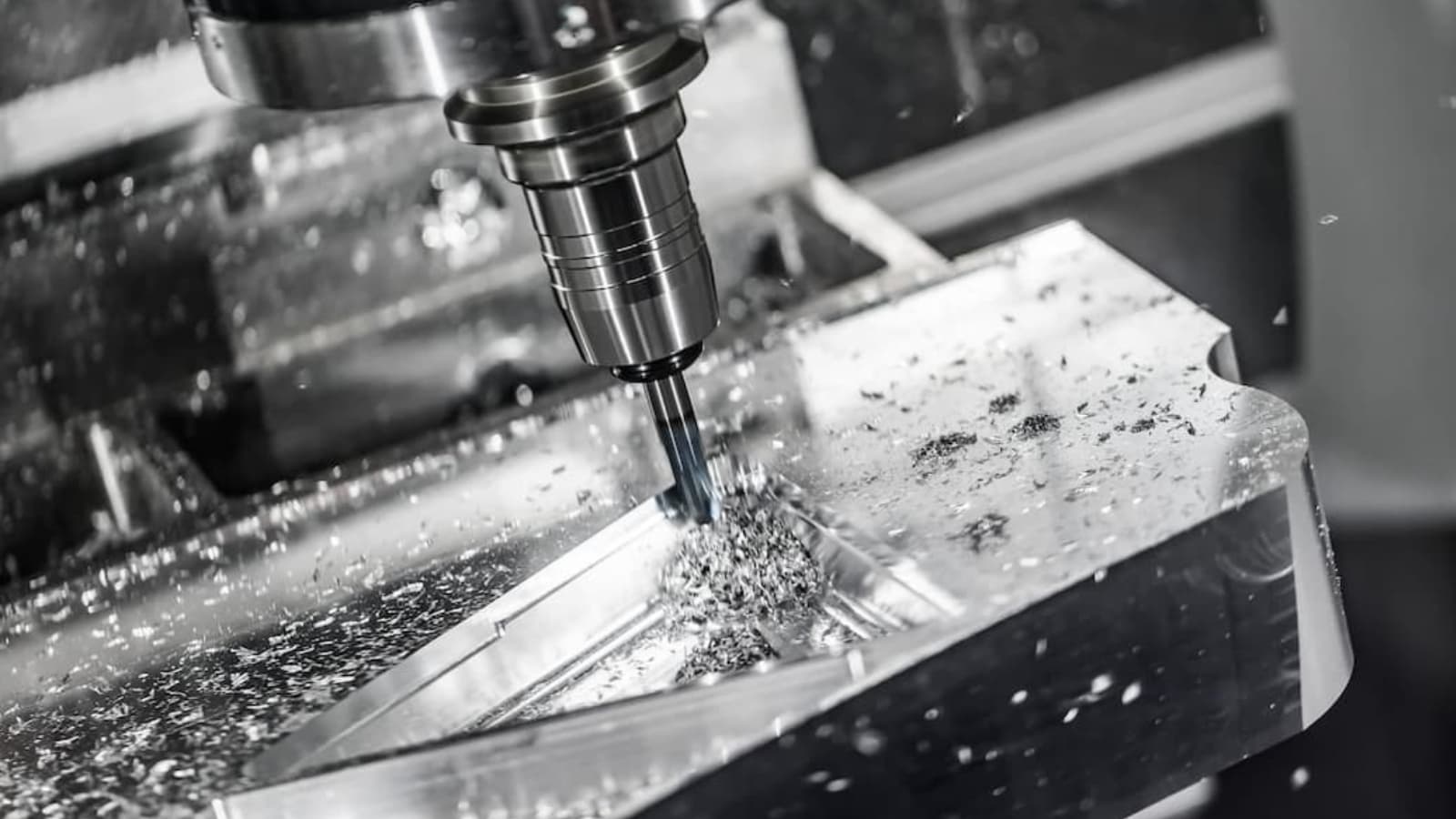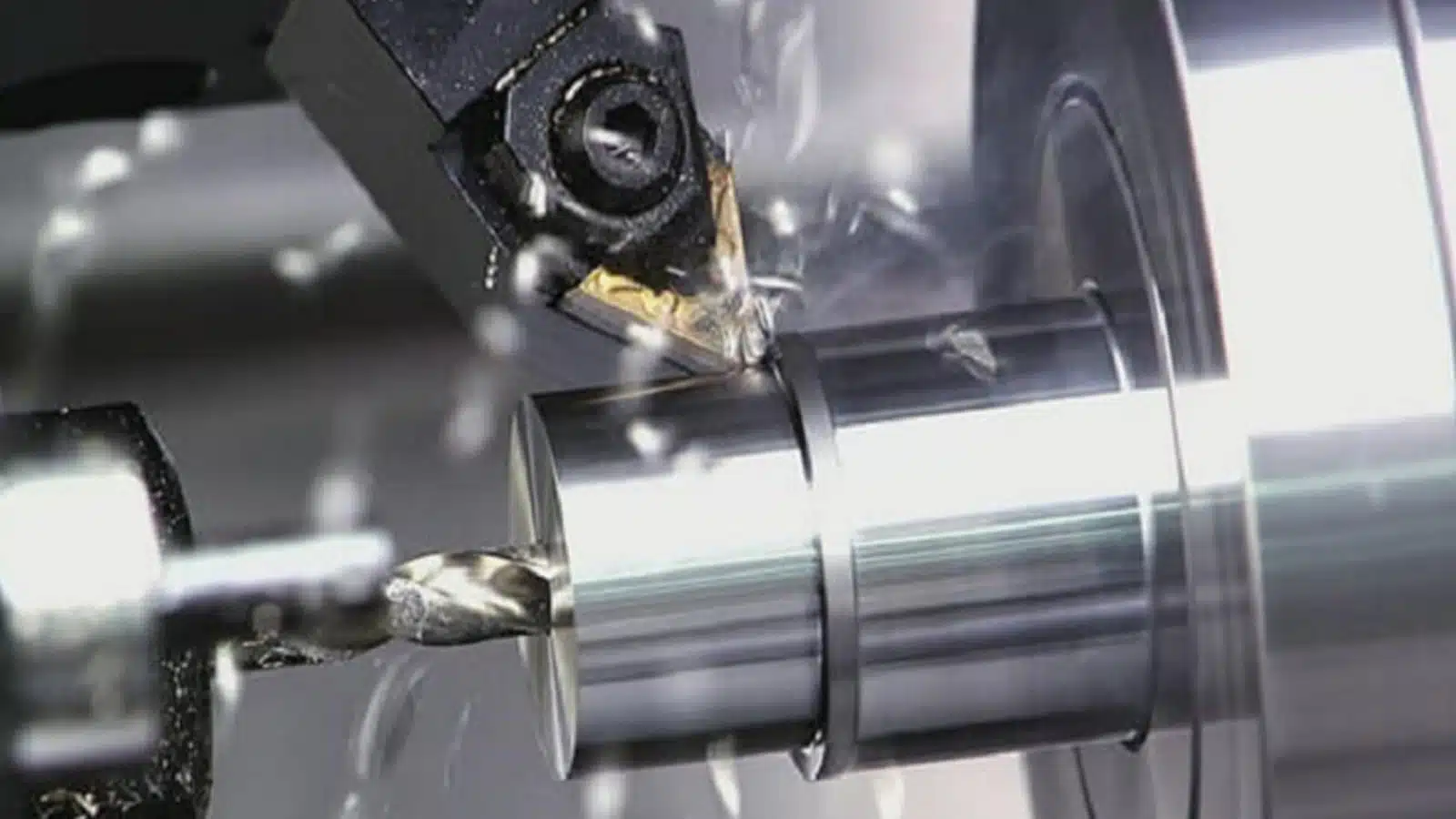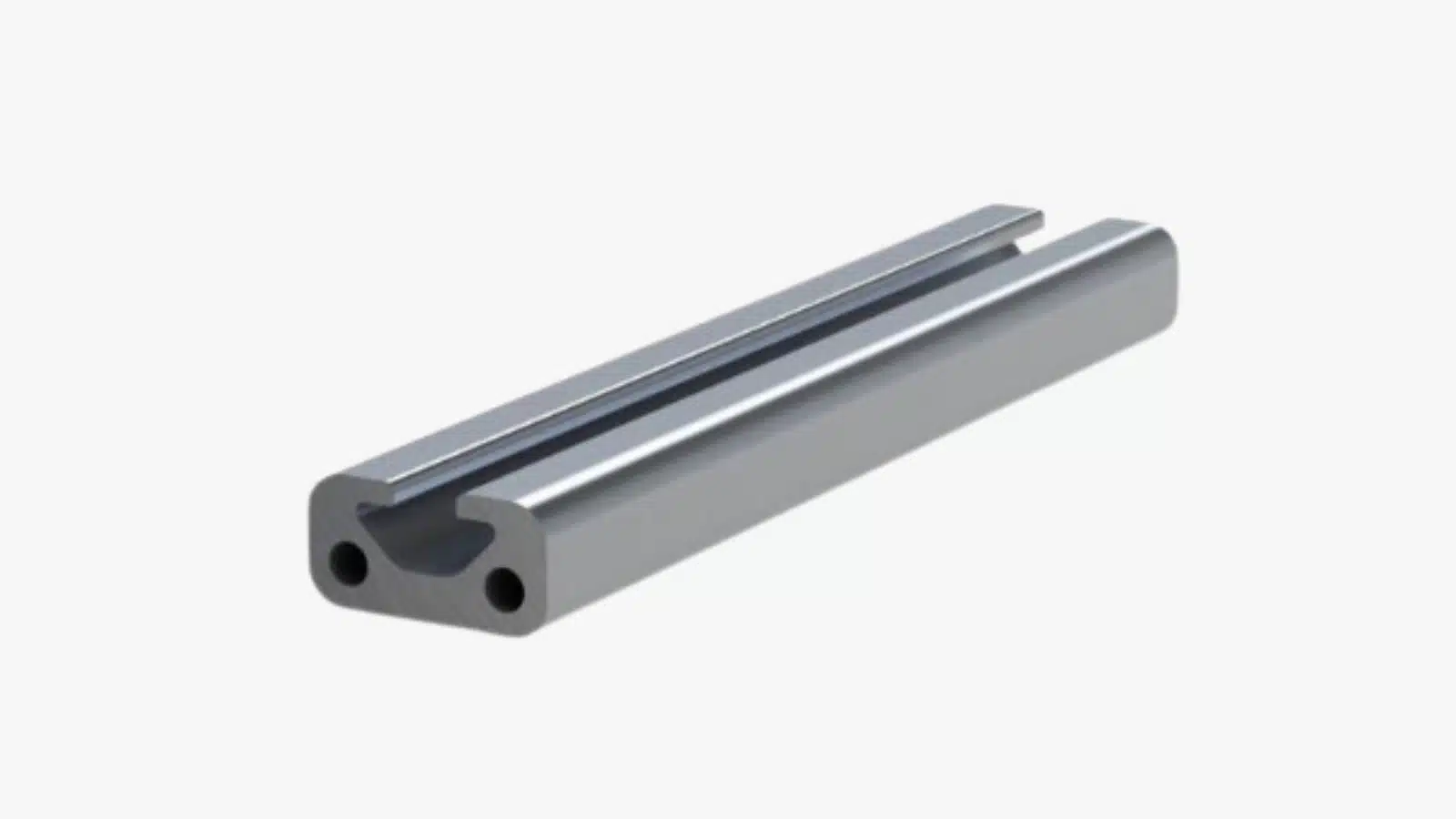Zinc die casting in the automotive industry was worth $3.66 billion in 2021, with strong projections for growth in the future. This fact is a testament to its enormous scale and enough to warrant a discussion on this topic.
In this article, we will highlight the importance of zinc die casting for automotive parts, go over the details of the hot chamber die casting process, and provide an array of examples and comparisons to enlighten our readers.
Let’s dive into this interesting facet of the automotive industry.
Brief Overview of Zinc Die Casting
Zinc die casting is a popular manufacturing process with high-precision, lightweight, and cost-effective.
The process involves a mold with a cavity in the shape of the desired part geometry. A pressurizing mechanism pumps molten metal into this cavity and maintains it at high pressure until it cools down. By the end of the cooling cycle, the metal has taken its final, near-net shape form.
The high pressures during the process make die-cast components strong and produce a good surface finish. Thus, zinc alloys in the automotive industry are very utilitarian due to these favorable qualities.
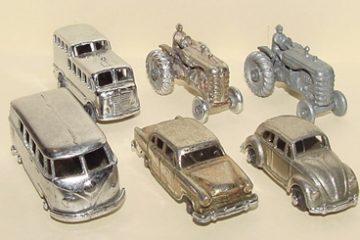
Why Choose Zinc Die Casting in the Automotive Industry
There are several reasons why companies prefer zinc die casting in the automotive industry. Let us explore these reasons one by one in detail.
High Strength and Hardness
Zinc die casting components are ideal for the automotive industry due to their incredible strength and hardness. These qualities are highly favorable for vehicle manufacturing owing to tight constraints from factors like road performance, speed, user safety, etc.
Die-cast zinc alloys possess the strength to bear the high dynamic and thermal loads automobiles are subject to. Their hardness allows them to survive impact loading and surface wear and tear.
Electrical Conductivity
The automotive sector is rapidly transitioning towards automation and AI-supported technologies. As a result, many die casting parts for automotive products now have electronics embedded in them. For example, the rearview mirrors of many cars now show camera displays and important information like distance scales.
Thus, good electrical conductivity is a very desirable quality for automotive components housing electrical circuitry. Zinc die castings in automotive applications are becoming increasingly popular due to zinc’s electrical conductivity properties.
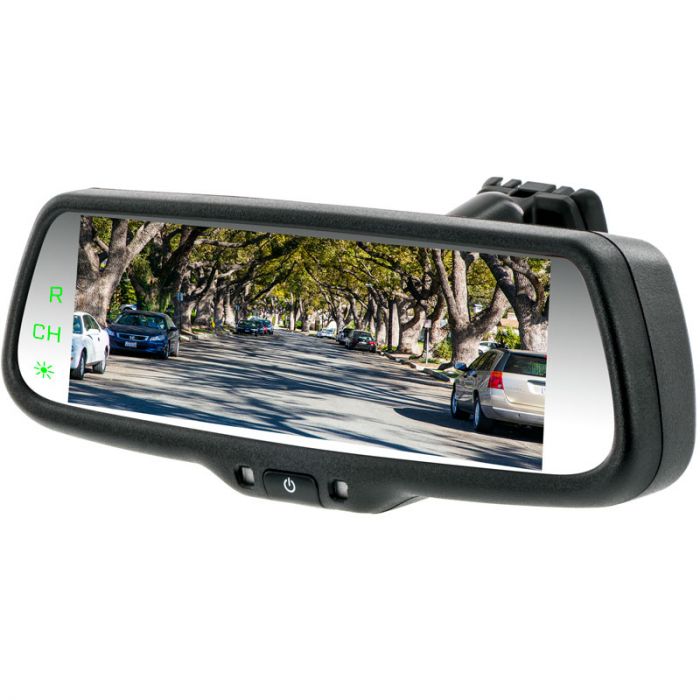
Low Costs
Among other metals like aluminum, zinc die casting in the automotive industry is a relatively cheaper process.
Zinc has a lower melting point so it melts quickly, saving energy costs. Its high-pressure die casting method is faster than alternative processes. Hence, higher productivity directly leads to lower production costs.
Moreover, tooling costs for zinc die casting are approximately 50% less than for aluminum casting. Dies for zinc die casting also has a longer life. As a result, the overall manufacturing costs are significantly low.
Complex Geometric Features
Zinc alloys in the automotive industry are often used to manufacture complex geometries. The mechanical properties of zinc make it suitable for features with thin walls, curved surfaces, slender parts, thin cross-sections, etc. Modern equipment makes it possible to die cast zinc walls as thin as 0.5 mm.
Zinc has high fluidity in molten form. Thus, it can easily fill the hard-to-access voids in the die. Furthermore, the high pressures in die casting also reduce porosity in the final product. As there are fewer pores, the part comes out strong.
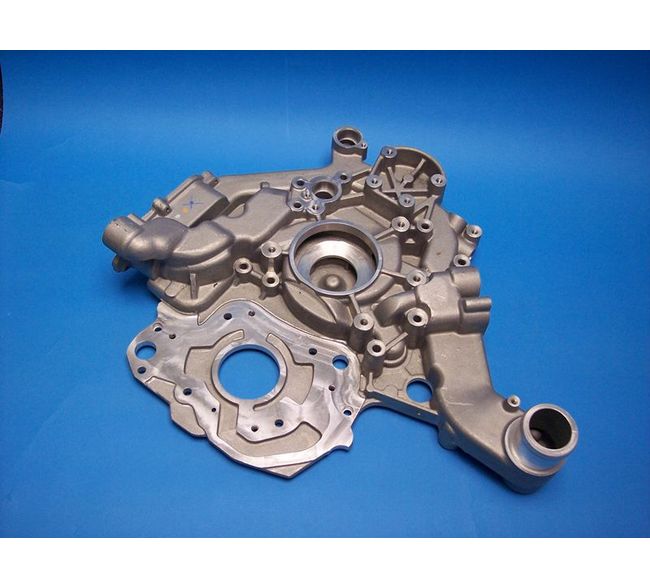
High Dimensional Tolerance
Zinc die casting is a near-net shape process, boasting a repeatability of +/- 0.001 inch for small geometries. Generally, it beats competing metals like aluminum and magnesium with its compatibility with low-temperature, high-pressure.
Moreover, its higher fluidity is another reason for its superior dimensional tolerance. It fills the die cavity entirely and is, thus, better able to maintain its shape during thermal contraction.
Good Surface Quality
In addition to its aforementioned benefits, it is also responsible for the elite surface quality of zinc die casting in automotive industry.
Zinc’s fluidity allows it to fully fill the cavity, leaving no gaps between the walls and the molten metal, which enables it to fully capture the surface texture in detail. Moreover, it also does not adhere to the mold’s walls. As a result, there is less pitting on the surface, which increases its smoothness a lot.
Furthermore, a common reason for high surface roughness in cast parts is porosity. Casting-induced pores are visible on the surface and make it coarse. As zinc die casting has low porosity, it creates a smooth, pore-free surface.
Additionally, zinc alloys are also compatible with many surface treatment procedures like chrome plating and painting. Such post-processing methods further improve the surface quality of zinc components.
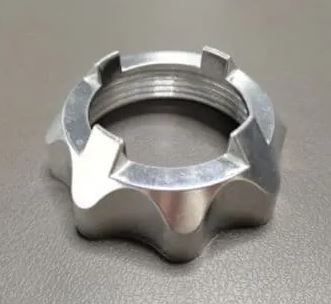
Corrosion Resistance
Automobiles are very frequently exposed to moisture. We drive in the rain, near the beach, on humid days, and often wash our cars. The need for automotive components to be corrosion-resistant is necessary to ensure a long life for automobiles.
Zinc die casting components are resistant to corrosion and perform exceptionally in such moist environments. In most cases, zinc components perform as well as aluminum parts in terms of protection against corrosion.
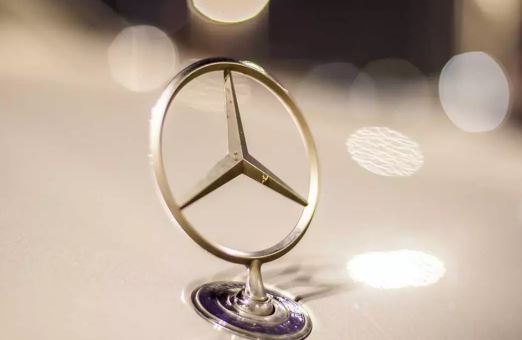
Environment Friendly
As we discussed above, zinc die casting consumes less energy, takes less time, and is more productive. All of these factors make it an environment-friendly manufacturing process.
Additionally, zinc parts are recyclable and are often salvaged for reuse once a vehicle’s life is over.
Zinc Die Casting Automotive Components
We believe we have made a strong case for zinc die casting. Now, let us see some examples of zinc die castings in automotive applications.
- User and Vehicle Safety Components: Gears and pulleys in automobile seat belt units are often zinc die-cast parts. They are durable and have the right hardness and mechanical strength to take shock loads in case of accidents. Moreover, the housings for door locks are also made from zinc die casting due to their strength.
- Enclosures: Airbag enclosures, as well as enclosures containing electrical components like sensors and switches. Zinc’s surface quality and electrical conductivity make it suitable for these applications.
- Rearview Mirrors: Zinc die casting is a popular choice for manufacturing bodies of rearview mirrors with electrical components.
- Sunroof, Windshield Wipers: These components need to be resistant to corrosion as they come in regular contact with water. Zinc die casting is a good candidate to manufacture these parts.
- Chassis Parts, Brackets, & Transmission Components: Zinc die casting checks all boxes for manufacturing these stress-bearing components. It has the required strength and hardness capabilities to bear the high-stress loading on these parts.
Hot Chamber Die Casting – Making Zinc Auto Parts
Hot chamber die casting is the most preferable technique for zinc die casting in automotive industry. It is a high-productivity, high-pressure die casting (HDPE) process that takes advantage of the low melting point of zinc alloys (around 440oC) when compared to aluminum alloys (660oC).
Due to this, it is possible to have the furnace very near to the die casting setup without damaging it. The hot chamber die casting method incorporates the die and furnace in a combined setup.
Initially, the zinc alloy heats up and melts in the furnace. Once the melting is complete, a hydraulic cylinder pumps the molten zinc into the die cavity at high pressure, where it cools down to achieve its final form.
This process is much more efficient than time- and resources-consuming cold chamber die casting, where the furnace is not in-built and the molten metal is manually or automatically transferred to the die. Moreover, it is necessary to heat the metal above its melting point in cold chamber die casting to maintain its molten state during its transfer to the die.
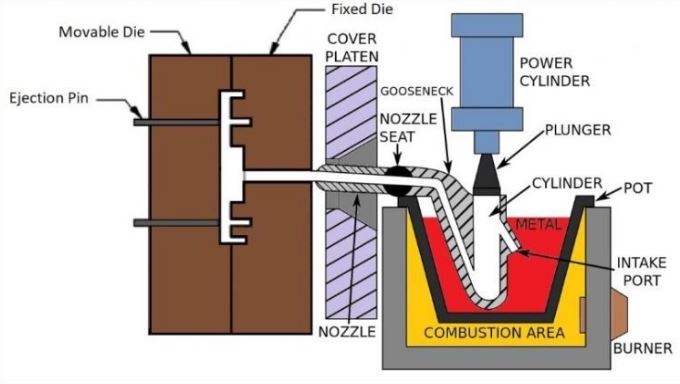
Get Your Custom Zinc Auto Parts Casting
RapidDirect provides a high-quality zinc die casting services for the automotive industry. We offer a wide range of zinc alloys at competitive prices. In addition to this, our powerful facilities, fast turnaround, and strict quality inspection standards are a guarantee of our high-quality zinc die casting services.
Our team is dedicated to meeting your demands in the best possible way. We also provide in-depth Design for Manufacturing (DFM) analysis to assist you in decision-making.
Zinc Auto Parts vs. Aluminum Auto Parts
Aluminum die casting provides strong competition to automotive zinc die casting parts. In this section, we will briefly compare automotive parts made from these two materials.
We already know the strengths of zinc die casting in the automotive industry. Zinc auto parts are compatible with hot chamber die casting due to their low melting temperature, high strength and hardness, fine surface finish, and good electrical conductivity. Moreover, zinc auto parts also have high thermal conductivity and corrosion resistance.
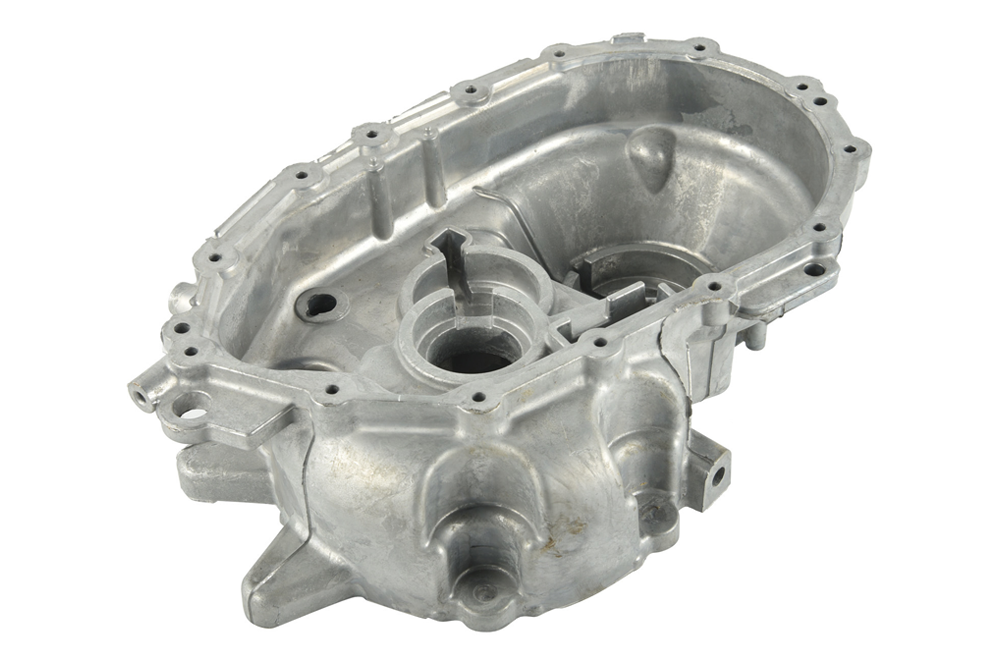
Aluminum auto parts are compatible with operating temperatures with their higher melting point. They are also more lightweight in comparison with their zinc counterparts. Furthermore, aluminum auto parts also require minimal finishing like zinc. It is worth noting though that they do not outperform zinc. Moreover, aluminum parts are at a disadvantage when it comes to manufacturing costs and tooling life.
In general, zinc and aluminum auto parts have their strengths and weaknesses. Engineers and entrepreneurs agree that zinc is a better material choice for die casting applications as it has more benefits. However, aluminum is also widely popular due to its low density and thermal properties.
Conclusion
In conclusion, we hope that this was an informative article for you to read. Zinc die casting in automotive industry is often overlooked, but in reality, it is a huge industry with a range of applications.
In this discussion, we covered the benefits and applications of zinc die casting, explained the hot chamber die casting process, and also compared zinc and aluminum auto parts.
Finally, we point you toward the high-end zinc die casting services of RapidDirect. Feel free to contact our expert team for consultation on your rapid prototyping projects.
